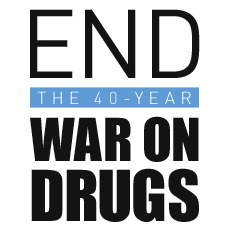
June 2011 marks the 40th anniversary of President Richard Nixon's declaration of a "war on drugs" — a war that has cost roughly a trillion dollars, has produced little to no effect on the supply of or demand for drugs in the United States, and has contributed to making America the world's largest incarcerator. Throughout the month, check back daily for posts about the drug war, its victims and what needs to be done to restore fairness and create effective policy.
The failed “war on drugs” has taken an incalculable toll on our communities, and nowhere is it more apparent than in our immigrant communities. Many of my clients could tell you about that toll, but one in particular stands out in my mind as a cautionary tale about the sheer waste of human potential caused by U.S. drug policy.
This client, whom I’ll call Joe, was a fairly typical New Yorker — an immigrant, a father of two young children, a devoted son, and a man who struggled mightily to make ends meet. Having immigrated lawfully to the United States as a teenager, Joe worked two full-time jobs as a security guard at a homeless shelter and another nonprofit that mediated landlord-tenant disputes. Gifted with intellectual curiosity and a desire to work for his community, he had professional ambitions. On top of his two paying jobs, he also volunteered as a community organizer at a third local nonprofit agency. Joe worked hard to realize his dreams and eventually put himself through community college while holding down multiple jobs.
But Joe fell on hard times. He worked 1 a.m. to 9 a.m. six days a week as a security guard on top of his 9:30 a.m.-to-5 p.m. shift five days a week as a community organizer. After his partner gave birth to their second baby, he became even more sleep deprived and was fired from his daytime job for chronically falling asleep on the job. Joe was unable to find another community organizing job and began working at two different dry cleaning shops for $250 a week.
At that low point in his life, a childhood friend made Joe a fateful offer. Desperate for a way out of his financial troubles, Joe agreed to carry a duffel bag containing drugs from New York to Richmond, Virginia. But when Joe arrived at Penn Station and stood in line to buy his ticket, Drug Enforcement Agency (DEA) agents pulled him out of line (without giving him any reason) and took him to the police station at Penn Station, where they searched his bag. The court sentenced Joe to 46 months in prison, enhancing his sentence because he had dared to bring a constitutional challenge to the agents’ seizure and search of his bag.
Joe served his time. True to character, he worked hard in prison to be as productive as he could. He volunteered as a peer counselor for a suicidal fellow inmate and signed on for a drug rehabilitation course, even though he had never used drugs himself and though, as an immigrant, he would receive no sentence reduction like all the other participants would. Joe wanted to take the course because deeply regretted his brief involvement in the drug trade and wanted to understand the toll that drugs had taken on his fellow inmates.
After Joe completed his sentence and paid his debt to society, however, the “war on drugs” was not done with him. Although Joe was a lawful permanent resident of the United States, as a result of a 1988 amendment to the Immigration and Nationality Act, he was now deemed an aggravated felon and had no way to make his case for remaining in the United States. The immigration court had no power to consider Joe’s two young U.S. citizen daughters, or his spotless record prior to his one offense. Joe was deported to a home country he no longer knew, where he had no ties and felt completely lost and alone. Because of harsh immigration laws enacted in 1996, even long-time permanent residents like Joe who have family members and community ties to the U.S. are now subject to mandatory detention and deportation if they are convicted of a drug-related “aggravated felony.” In recent years, interpretations of this aggravated felony definition — aggressively pushed by U.S. Immigration and Customs Enforcement (ICE) attorneys and upheld by federal immigration judges — have included low-level and nonviolent drug possession charges.
Thousands of immigrants are suffering the consequences of these harsh and unjust laws. Using data acquired from ICE, a 2009 Human Rights Watch found that 13.6 percent of those deported on criminal grounds between April 1, 1997 and August 1, 2007, or 122,180 people, were deported based on a nonviolent drug offense. Especially in the current economy, one has to wonder if the — in addition to the human cost — is worth it.
It has been about 11 years since Joe was sentenced to federal prison and seven years since he was banished from the country and the city that he loved as his own. Joe’s two daughters have grown up without their father. Joe’s mother has had to get along without her son. For Joe, as for countless others, the unrelenting and unforgiving “war on drugs” has cost him not only years of his life, but his family, his community, and his adopted country. And by closing our hearts to any notion of redemption, America has lost the many contributions Joe could have continued to make.
Learn more about the war on drugs: Sign up for breaking news alerts, , and .
